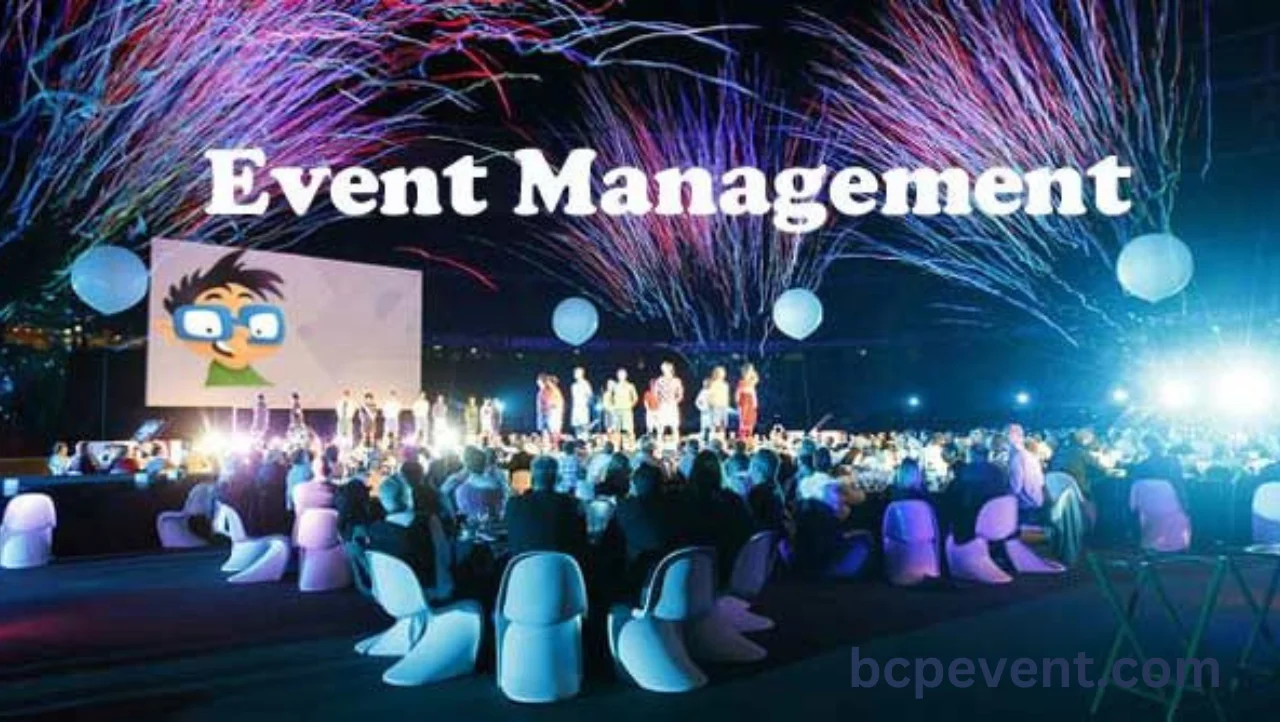
Introduction:
In the ever-evolving landscape of event management, staying abreast of the latest trends is crucial for organizing successful large-scale conferences.
With advancements in technology, shifting attendee expectations, and a greater emphasis on engagement, event planners are continually adapting their strategies.
This article explores some of the most prominent trends in event management for large-scale conferences, providing insights into how these trends can enhance the overall attendee experience.
Immersive Technologies:
One of the top trends in event management is the integration of immersive technologies such as virtual reality (VR) and augmented reality (AR). These technologies offer unique and interactive experiences for conference attendees, allowing them to engage with content in innovative ways. From virtual walkthroughs of exhibition halls to AR-powered information displays, immersive technologies are transforming how conferences are perceived and experienced by Event Management conferences.
Personalization and Customization:
Attendees now expect a more personalized and tailored experience at conferences. Event Management & planners are leveraging data and attendee profiles to create customized agendas, personalized recommendations, and targeted networking opportunities. This level of personalization helps attendees make the most out of their conference experience by focusing on content and connections that align with their interests and objectives.
Sustainability and Green Initiatives:
Sustainability has become a central concern in event management. Large-scale conferences are adopting eco-friendly practices, including waste reduction, recycling programs, and carbon offsetting. Sustainable event design, incorporating renewable energy sources and green materials, is also gaining traction. By integrating sustainability practices, Event Management & planners can reduce the environmental impact of conferences while demonstrating their commitment to responsible event management.
Hybrid and Virtual Experiences:
The COVID-19 pandemic has accelerated the adoption of hybrid and virtual event formats. Large-scale conferences are now incorporating virtual components to cater to remote attendees and ensure wider accessibility. Event Management are investing in robust virtual platforms, interactive live streaming, and networking tools to deliver engaging and inclusive experiences. This trend allows conferences to reach a global audience and offers attendees the flexibility to participate remotely.
Gamification and Interactive Experiences:
To enhance attendee engagement, event planners are turning to gamification and interactive experiences. Gamification elements such as leaderboards, challenges, and rewards incentivize participation and create a sense of excitement. Interactive exhibits, immersive installations, and interactive sessions encourage active involvement and facilitate knowledge exchange among attendees by Event Management conferences.
Large-scale conferences are constantly evolving, driven by the latest trends in event management. From embracing immersive technologies to personalizing experiences, prioritizing sustainability, and leveraging hybrid and virtual formats, event planners are at the forefront of innovation. By staying informed about these trends and adopting relevant strategies, organizers can create impactful conferences that leave a lasting impression on attendees.
Event Managers Effectively Incorporate Sustainability Practices into their Events
Incorporating sustainability practices into events has become increasingly important for Event Management officer who seek to minimize environmental impact and promote responsible event management. Here are some effective ways event managers can incorporate sustainability practices into their events:
Venue Selection and Design:
Event managers can choose venues that prioritize sustainability. Look for venues that are LEED certified or have eco-friendly initiatives in place, such as energy-efficient lighting and heating/cooling systems. Additionally, consider the venue’s accessibility to public transportation to encourage attendees to use greener transportation options. Design the event layout to maximize natural light and airflow, reducing the need for excessive energy consumption.
Waste Management:
Implement comprehensive waste management practices to minimize the environmental footprint of the event. This includes setting up clearly labeled recycling stations throughout the venue and providing composting options for food waste. Work with vendors and sponsors to minimize packaging waste and encourage the use of recyclable or biodegradable materials. Consider partnering with local organizations that can assist with waste management and recycling efforts.
Sustainable Food and Beverage Options:
Choose catering options that prioritize sustainability. Opt for locally sourced, organic, and seasonal foods to support local producers and reduce the carbon footprint associated with long-distance transportation. Minimize food waste by accurately estimating attendee numbers and offering customizable meal options. Serve tap water or provide water stations instead of single-use plastic bottles. Implement sustainable practices for food and beverage service, such as using biodegradable or reusable utensils, plates, and cups.
Energy Conservation:
Implement energy-saving measures to reduce the event’s energy consumption. Use energy-efficient lighting and equipment throughout the venue, and encourage presenters and exhibitors to use energy-saving technologies and practices. Utilize smart power strips to easily control and minimize phantom power consumption. Consider renewable energy options such as solar or wind power to offset energy usage during the event.
Transportation and Travel:
Encourage attendees to use sustainable transportation options by providing information on public transit routes, bike-sharing programs, or carpooling opportunities. If feasible, organize shuttle services using low-emission or electric vehicles. Offset the carbon emissions associated with travel by partnering with carbon offsetting programs or donating to environmental initiatives.
Education and Engagement:
Promote sustainability awareness and encourage attendees, exhibitors, and staff to actively participate in sustainable practices. Use digital communication and event apps to reduce paper waste and provide event information electronically. Organize sustainability-focused sessions or workshops to educate attendees on sustainable practices they can implement in their personal and professional lives of Event Management system.
Measurement and Reporting:
Establish metrics and guidelines to measure the event’s sustainability performance. Track data such as waste diversion rates, energy consumption, and carbon emissions. Analyze the results to identify areas for improvement and set targets for future events. Communicate the event’s sustainability achievements and efforts through post-event reports and marketing materials, inspiring other event organizers to adopt similar practices.
By implementing these sustainability practices, event managers can make a positive impact on the environment and demonstrate their commitment to responsible event management. Additionally, engaging attendees in sustainable practices can raise awareness and encourage a broader movement toward environmental stewardship within the event industry.
Some Innovative Technologies Being Used in Event Management to Enhance Experiences
Innovative technologies have significantly transformed the event management landscape, revolutionizing the way attendees experience events. Here are some of the innovative technologies being used to enhance attendee experiences:
Virtual and Augmented Reality (VR/AR):
Virtual and augmented reality technologies offer immersive experiences that transport attendees to virtual environments or overlay digital content onto the real world. Event Management managers can utilize VR/AR to create interactive simulations, virtual tours of venues, or showcase products and services in engaging and interactive ways. Attendees can explore virtual exhibition halls, participate in virtual networking sessions, or interact with virtual objects and information displays, enhancing their overall event experience.
Event Mobile Apps:
Event mobile apps have become a staple in enhancing attendee experiences. These apps provide a centralized platform for event information, scheduling, networking, and engagement. Attendees can access event agendas, create personalized schedules, receive real-time updates, and connect with other attendees through built-in messaging or networking features. Mobile apps also facilitate interactive elements such as live polling, Q&A sessions, and gamification, fostering attendee engagement and participation.
Beacon Technology:
Beacon technology utilizes Bluetooth Low Energy (BLE) devices strategically placed throughout the event venue. These beacons can communicate with attendees’ smartphones, providing location-based information and personalized notifications. Event Management managers can leverage beacons to offer personalized recommendations, send event updates, provide navigation assistance, and deliver targeted content based on attendees’ proximity to specific areas or exhibitors. This technology enhances convenience and engagement by delivering relevant and timely information to attendees.
Live Streaming and On-Demand Video:
Live streaming and on-demand video technologies enable event organizers to reach remote attendees who are unable to attend the event in person. By live streaming sessions, keynote speeches, or panel discussions, event managers can extend the event’s reach and enable virtual participation. Additionally, providing on-demand video content allows attendees to access recorded sessions and revisit valuable content even after the event concludes, enhancing the overall educational and informative experience.
Artificial Intelligence (AI) and Chatbots:
AI-powered chatbots have become increasingly prevalent in event management. These intelligent virtual assistants can provide instant support and information to attendees, addressing frequently asked questions, assisting with navigation, and providing personalized recommendations. Chatbots can also analyze attendee data and preferences to offer customized suggestions for sessions, exhibitors, or networking opportunities, enhancing the attendee’s event experience.
RFID and NFC Technology:
Radio Frequency Identification (RFID) and Near Field Communication (NFC) technologies are used for various applications in event management. Attendees can be provided with RFID wristbands or NFC-enabled badges that streamline access control, registration, and payment processes. These technologies also facilitate interactive experiences, such as scanning RFID tags to collect information, participate in contests, or share contact details with exhibitors. RFID and NFC technologies enhance efficiency, convenience, and engagement for attendees.
Social Media Integration:
Integrating social media platforms into event management helps amplify the attendee experience. Event Management managers can create event-specific hashtags, encouraging attendees to share their experiences, insights, and photos on social media platforms. Live social media walls or displays showcasing real-time social media posts from attendees can foster a sense of community and enable attendees to connect and engage with each other online.
By leveraging these innovative technologies, event managers can create memorable and engaging experiences for attendees. From immersive virtual and augmented reality to mobile apps, beacons, live streaming, AI chatbots, RFID/NFC, and social media integration, these technologies enhance connectivity, interactivity, and personalization, taking event experiences to new heights.







